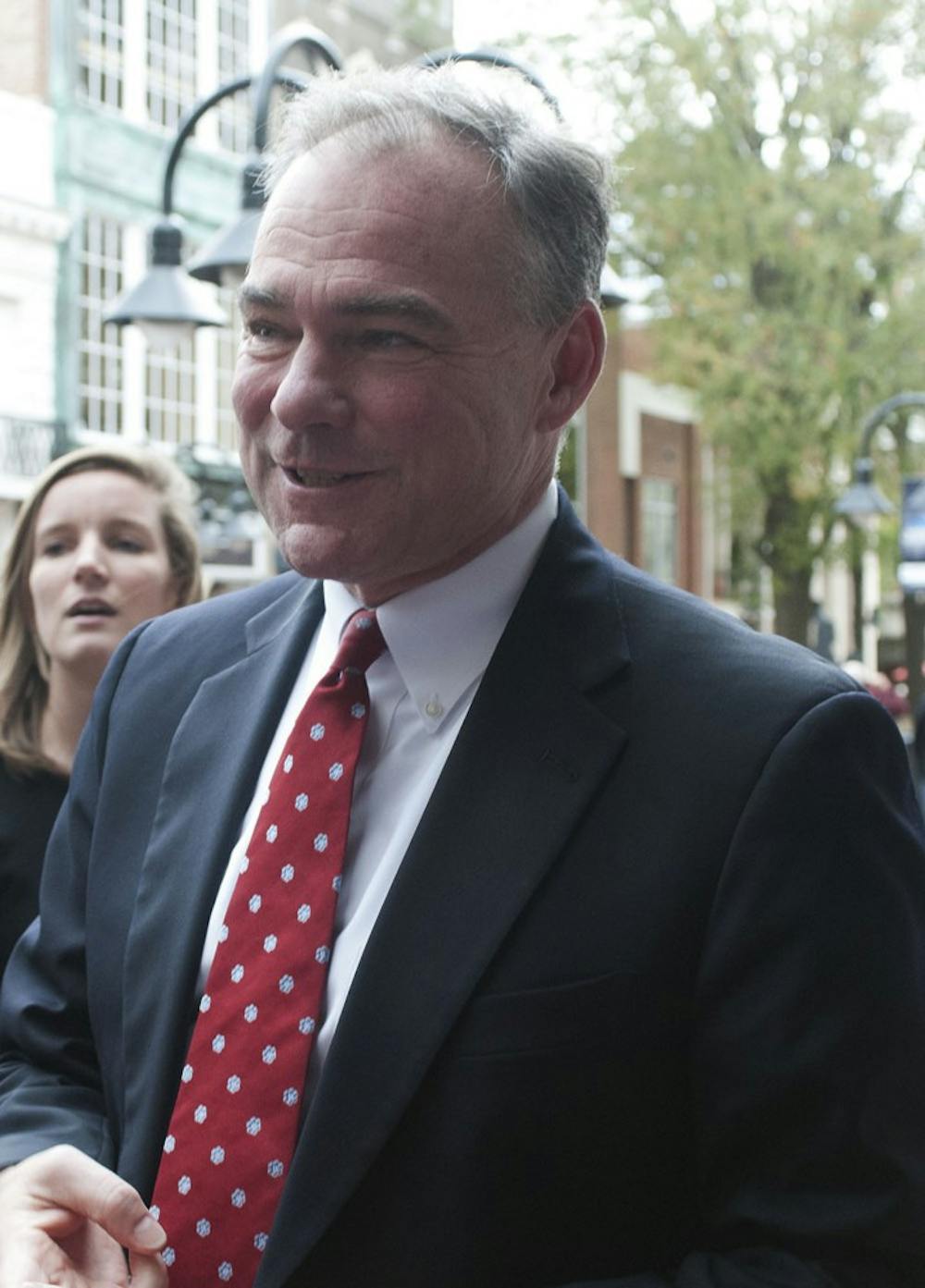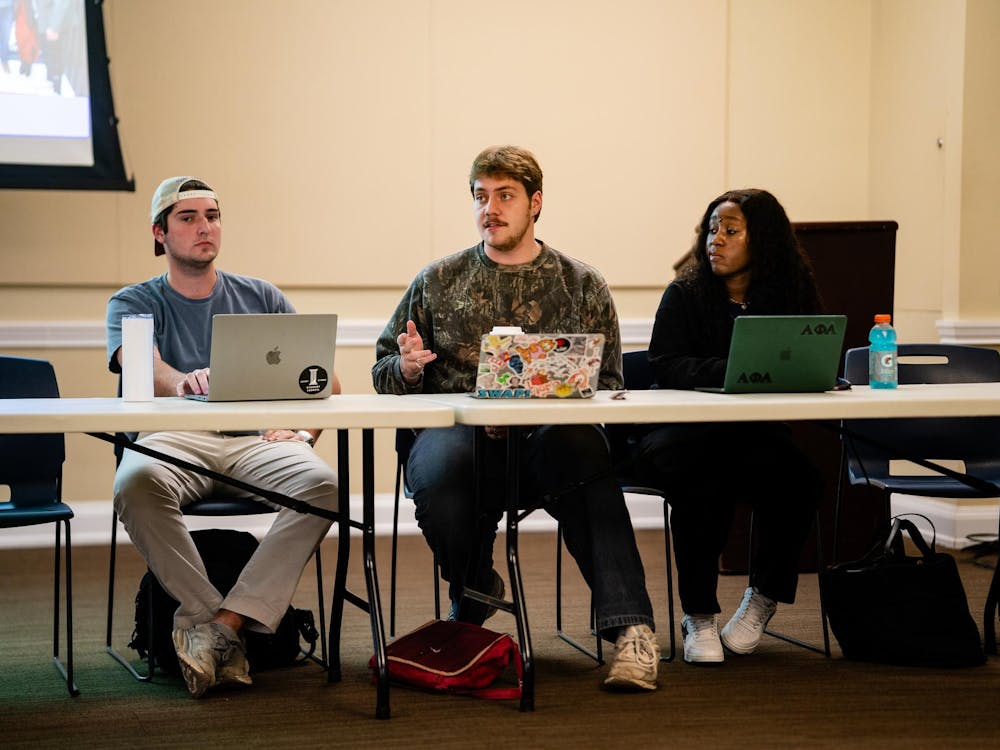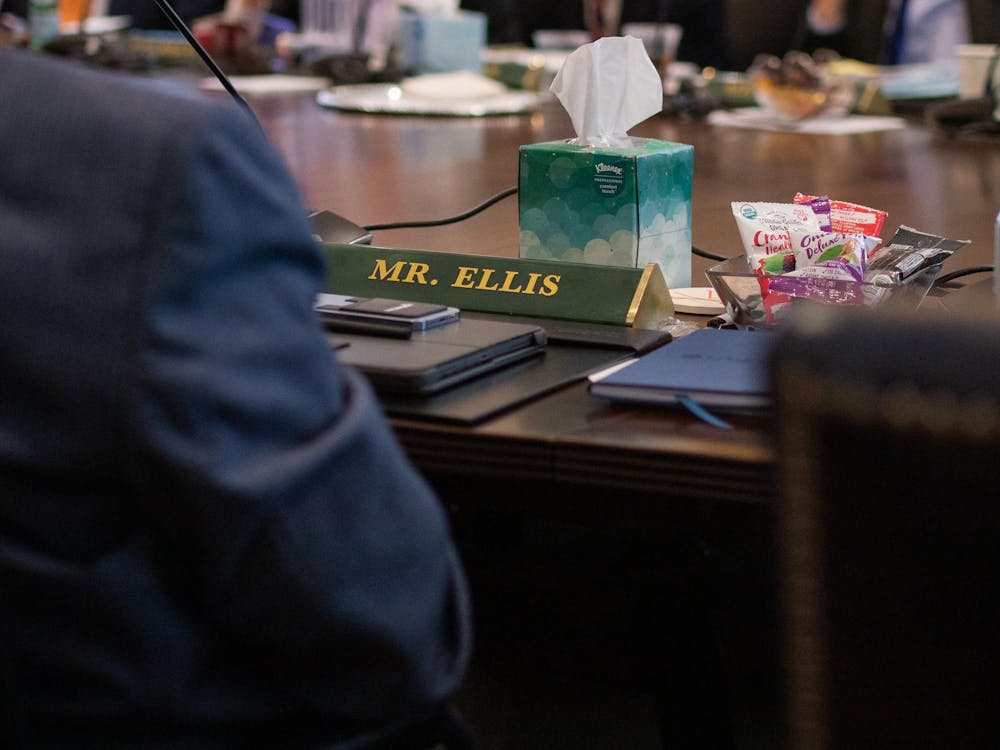For several years, the Miller Center has partnered with Sen. Tim Kaine, D-VA, to pass legislation in Congress which would more narrowly define war powers.
Kaine, with co-sponsors Sen. John McCain, R-AZ, and Angus King, I-ME, proposed the War Powers Consultation Act, primarily based upon the work of the Miller Center’s National War Powers Commission, to the U.S. Senate on Jan. 16 of last year.
Constitutionally, Congress is the sole branch of government that can declare war. However, over time the executive branch has gained some leeway in engaging in acts of war without congressional approval. The War Powers Consultation Act seeks to limit this.
The act proposes two significant alterations to the current legislation while defining “significant military action” as combat which is expected to last seven days or longer. The first provision establishes a permanent consultation committee made up of majority and minority leaders of both houses of Congress, as well as ranking officials of the war-related congressional committees: Intel, Armed Services, Foreign Relations and Appropriations.
“This act would normalize and regularize what consultation with Congress means,” Kaine said in a statement.
The second major change would require a vote from both congressional bodies once significant military action is underway. This would ensure, Kaine said, an agreement between both branches to “reach a consensus behind the mission,” which could endanger the lives of American military personnel.
The proposed legislation gained relevance in light of the United States government’s continued engagement in military action with ISIL in the Middle East — action which lacks
Congressional approval.
“Today we enter the sixth month of war against ISIL without congressional authorization,” Kaine said in a press release from earlier this month. “Until December, when the Senate Foreign Relations Committee took the important first step of debating and approving a specific Authorization For Use of Military Force against ISIL, Congress was silent — an unacceptable abdication of our most solemn responsibility as legislators. Now it’s time to finish what we started and not shy away from what’s required to reach a political consensus on the serious threat ISIL poses and the scope of this critical mission.”
Former Virginia Gov. Gerald Baliles, who served on the War Powers Commission and conferred with Kaine on the legislation, said recently there is a mounting desire in both the Senate and the public to determine a more concise war powers agreement.
“The interest in the subject matter and in the legislation is increasing,” Baliles said. “There is growing bipartisan support for Sen. Kaine’s and Sen. McCain’s proposal.”
Baliles said the ISIL conflict shows how the nature of war is changing, leading to “tiny wars and micro conflicts.” With the United States’ advanced technology and military power, unconventional military engagements have the capacity to destroy whole regions, creating an even more urgent need for clearly defined war processes, he said.
“The purpose of the Miller Center’s report [on War Powers] is to develop a pragmatic, realistic, clearly defined consultative process before military force is applied to a situation,” Baliles said. “It’s a way out of the impasse: what the American people want is clarity in the decision making.”
The effort to revise war powers policy began in 2008 when President Barack Obama was briefed on 13 months of work by the Miller Center’s National War Powers Commission. Former Secretaries of State James Baker, III and Warren Christopher chaired the committee.
The committee sought an amended War Power Act in 2007 and 2008, but the “time was not yet ripe for consideration of this bill,” Kaine said.
“Now that we are 40 years into an unworkable War Powers Resolution and now we have had a string of presidents — both Democratic presidents and Republican presidents — who have maintained that the act is unconstitutional,” Kaine said in a statement last January. “We do think it is time to revisit.”
The act, if passed, would replace the standing war powers legislation, however Kaine and McCain do not see it as the final word in the conversation about congressional responsibility for military action.
“I view our introduction of this legislation today as the start of an important congressional and national debate,” McCain said in a statement last January.
Kaine made political moves recently reflecting his intent to utilize the Miller Center's model for new war powers legislature. He spoke out against the executive military actions taken against the Islamic State in the Middle East which lack congressional approval. Under the War Powers Consultation Act, which was referred to the Committee on Foreign Relations, both Houses of Congress would have been required to vote upon the military action and either accept or deny involvement.
“Now it’s time to finish what we started and not shy away from what’s required to reach a political consensus on the serious threat ISIL poses and the scope of this critical mission,” Kaine said. “Additional delay not only sets a dangerous precedent for future conflicts, it dishonors the sacrifice of American servicemembers who are risking their lives in this mission.”
The Senate Foreign Relates Committee held a vote to authorize the use of military force against the Islamic State Dec. 11, 2014, underscoring the congressional involvement in measures of war for which Kaine and McCain have been advocating. This committee is the same committee to which the bill was initially referred.







